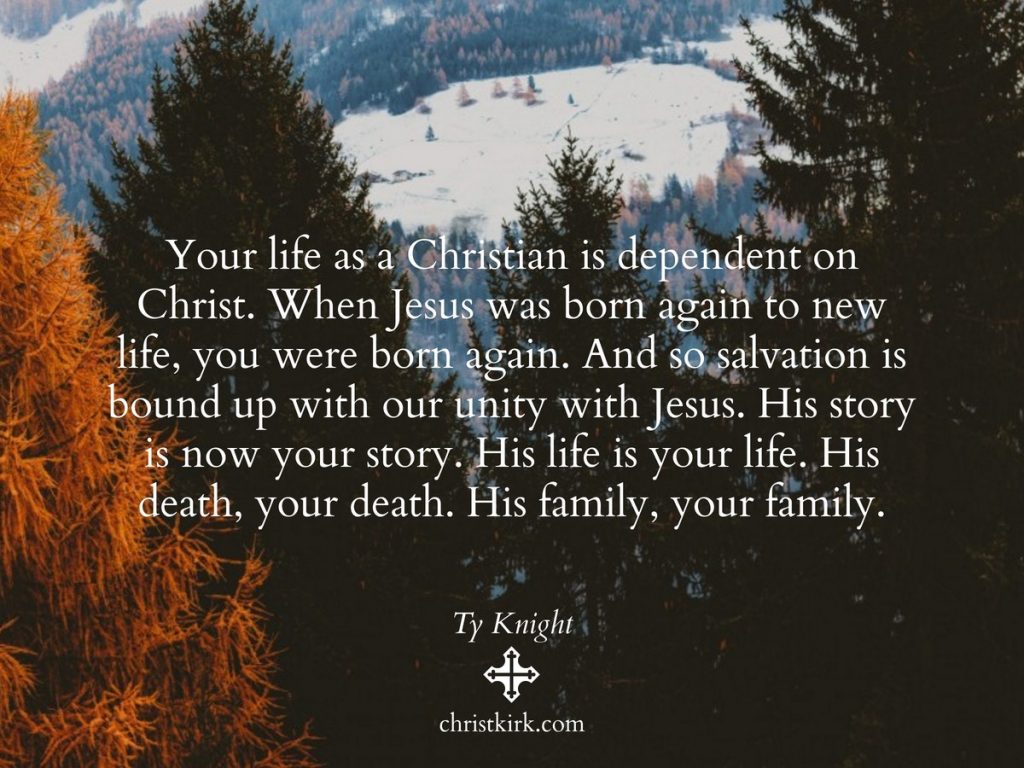Podcast: Play in new window | Download

God’s Chosen Exiles (vs. 1-2)
Peter addresses this letter to the elect, “eklektós,” the chosen ones. Most translations bump the word “eklektos” to verse two, but it’s the first word after Peter’s introduction, “Peter an apostle of Jesus Christ, to the elect…” The word “elect” was used in the Old Testament to refer to Israel, “For you are a holy people to the LORD your God; the LORD your God has elected you to be a people for Himself, a special treasure above all the peoples on the face of the earth” (Dt. 7:6). Peter echoes this in 1 Peter 2:9. When Peter addresses this letter to the elect, he is not talking about individual persons, but to God’s special people, the new Israel.
But God’s elect––the known, sanctified, blood-sprinkled and obedient people, are pilgrims scattered across the world. The word dispersion means scattering like the scattering of seed and was used in the Old Testament to describe the result for breaking the covenant (Dt. 28:25). Now God’s chosen people are pilgrims who have been scattered in Pontus, Galatia, Cappadocia, Asia, and Bithynia––the Roman provinces that make up the region called Asia Minor or modern day Turkey. Peter views this not as a curse but a blessing and cause for rejoicing.
A Psalm of Praise (vs. 3)
Peter starts his letter in worship. He begins with a psalm of praise, “Blessed be the God and Father of our Lord Jesus Christ!” There’s not a command to do something, but the acknowledgment and praise for what God has done for you.
The theme for this praise is the salvation inheritance that’s been brought by the abundant mercy of the Father, through the resurrection of Jesus, and revealed by the Holy Spirit. You were dead in your sins and born as children of wrath, but now because of the Father’s mercy, you are born again to a living hope, a hope of life. And Peter specifically says this happens through the resurrection of Jesus Christ from the dead. Your life as a Christian is dependent on Christ. When Jesus was born again to new life, you were born again. And so salvation is bound up with our unity with Jesus. His story is now your story. His life is your life. His death, your death. His family, your family.
Incorruptible, Undefiled, Unfading Inheritance (vs 4-5)
And what comes in a family? An inheritance from your Father. Salvation is life in Christ. And because we share in Christ’s life, we also share in Christ’s inheritance (Rom. 8:15-17). And no one will mess with Christ’s inheritance which is incorruptible, undefiled, unfading, reserved in heaven for you (vs. 4).
Your inheritance is kept secure in heaven, and you are kept secure in the world by the power of God (vs. 5). The word “kept” means guarded, protected by a military garrison. God is the sentinel in the citadel turrets guarding your life. The Father who knew you before time began, who caused you to be born into his family, who prepares your inheritance, will guard and kept you until you come to Him.
Joyous Salvation (vs. 6-9)
“In this you greatly rejoice, though now for a little while, if need be, you have been grieved by various trials.” You greatly rejoice even when you are being grieved. Can these emotions of joy and grief, these reactions occur at the same time? (Jm. 1:2)
One of the reasons you can have joy in the pain is because you know the the trials are from the Father and He has a purpose––“so that the genuineness of your faith, being much more precious than gold that perishes, though it is tested by fire, may be found to praise, honor, and glory at the revelation of Jesus Christ.” You don’t throw a lump of gold into a fire because you think it’s worthless. Fire is applied to reveal the gold’s value and make it more valuable. But the process of purification is non-too pleasant for the lump of gold, and so love Jesus, believe in Jesus, rejoice with joy inexpressible and full of glory. God regards your faith and its fire-tested purity as more valuable than gold, more valuable than an easy, comfortable life. Your faith will gleam to the honor, praise, and glory of Jesus Christ.
The Search for Salvation (vs. 10-12)
In these last verses Peter wants his readers to appreciate how valuable the gift is that they hold. The prophets in the Old Testament “searched carefully and inquired of the grace that would come to you.” They wrote the treasure map and investigated but never found the treasure. Peter says been given the treasure, your salvation. And our salvation is “the suffering of Christ and the glories that would follow.” Can you believe that? The ancient mystery was the grace of Jesus as the Christ who would suffer and die. This is the good news not only for you, but for all those who will share in the inheritance of Jesus.
Peter began this letter with a hymn of praise. And so worship must be our first response to what the Father, Son, and Spirit have done for his chosen people. Believe the gospel that you have been begotten again to a living hope. Rejoice greatly that you are kept by the power of God. Preach by the Spirit the salvation to the inheritance of the nations.